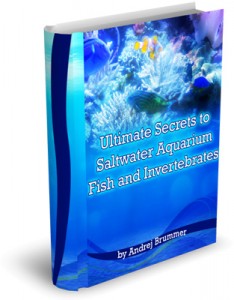Aquarium is a vivarium consisting of a least one transparent side in which water-dwelling plants or animals are kept. Aquariums usually seen in homes or big marine-type buildings to represent what kind of environment has the ocean have. But what if we talked about “reef aquarium” what is the difference between usual aquariums from a reef aquarium?
Reef Aquarium
A reef aquarium (also known as reef tank) is a marine aquarium that displays live corals and other marine animals including fish that plays the role in maintaining the coral reef environment. The reef aquarium requires appropriately intense lighting, turbulent water movement and more stable water chemistry that the usual marine aquarium that we see at home. In the reef aquarium, reef animals are given careful consideration so that they will be more compatible with each other.
Reef Aquarium Lighting
Reef Aquarium Lighting describes any type of light that is used to illuminate an aquarium tank, such as reef aquarium to support the life inside the aquarium. Reef aquarium lighting is different from the light used in freshwater aquarium because it requires very high average of light that the usual aquarium that we see in our homes. So a common question is asked: what kind of light should I use for my reef aquarium? Since most of inhabitants and plants for the reef aquarium comes from the tropical regions of the world.
Reef Aquarium recommends a high average of light from the Light emitting diodes (LEDs). Although LEDs are not new, technology has recently been adapted to produce system with qualities that allow them to be considered viable alternatives to gas-and filament-based aquarium lighting system. Some reef aquarium owners uses Very High Output (VHO) fluorescent tubes, compact fluorescent lighting, and metal halide lighting since they provide much brighter light than the usual fluorescent bulbs. Since some corals requires deep blue or actinic spectrum of lights to thrive many aquarist must supplement traditional white light with light of this color.
Another source of light that is used in reef aquariums is Metal Halide. This high output lights closely recreate the shimmering bright effect of the tropical sun over a patch of coral reef. Many metal halide bulbs come in a variety of spectra from 5000k on up to 20,000k and allows a variety of light hungry corals to survive. While the metal halide is very useful for reef aquarium owners it also requires a lot of electricity about 150-400 watts is being used and produces copious amount of heat. Most reef keepers mount halide bulbs at least one foot above their tank and some, due to the lights’ heat output reef keepers and owners had to add chillers to keep the aquarium water cool.
Common question asked by persons who wants to be a reef aquarium owner is: how long aquarium lights be on each day? Since corals in the reef aquarium comes from tropical areas in the world. Generally, the light period is 12 hours and with an intense period of 9 to 10 hours. So keeping the on for over 10 to 12 hours per day is no practical benefit and can cause algae to bloom. It is best to buy an inexpensive timer and automate light system.
Another common question is asked: how long will the lamps last? Usually lamps should be changed before they stop emitting light. The reason is that the color spectrum of the lamp is different from the original wavelength that the light emits. Lamps should be change at least once a year but it is required to change the lamps every 6 to 8 months.
Get 24 Inch Orphek Power Reef PR156 LED Light Fixture – Black now!!!
Get the BEST AQUARIUM LIGHTING SYSTEM from our store!!!
Click here to see the BEST AQUARIUM LIGHTING SYSTEM from other stores!!!
 Ultimate Secrets to Saltwater Fish and Invertebrates
Ultimate Secrets to Saltwater Fish and Invertebrates
The ultimate guide to keeping happy,healthy marine life (fish, corals and other invertebrates) and how to optimally set up a saltwater aquarium and maintain a pristine environment for your pets.
Here’s what you will learn from this guide:
Section 1: Setting up a Saltwater Aquarium
Section 2: Creating a Perfect Environment
Section 3: Popular Marine Fish Species Information
Section 4: Corals and Invertebrates
Section 5: Fish Diseases and Health
Section 6: Tank and Fish Troubleshooting
Leave a Reply